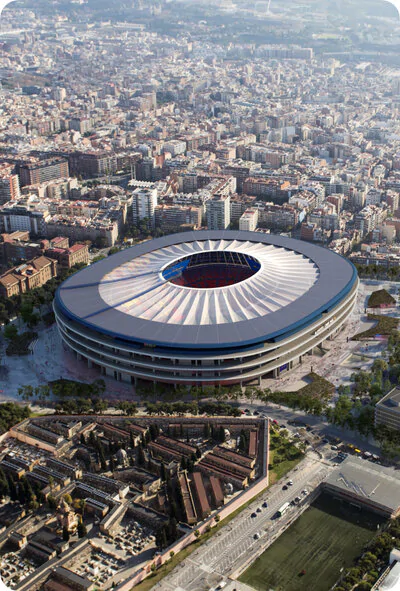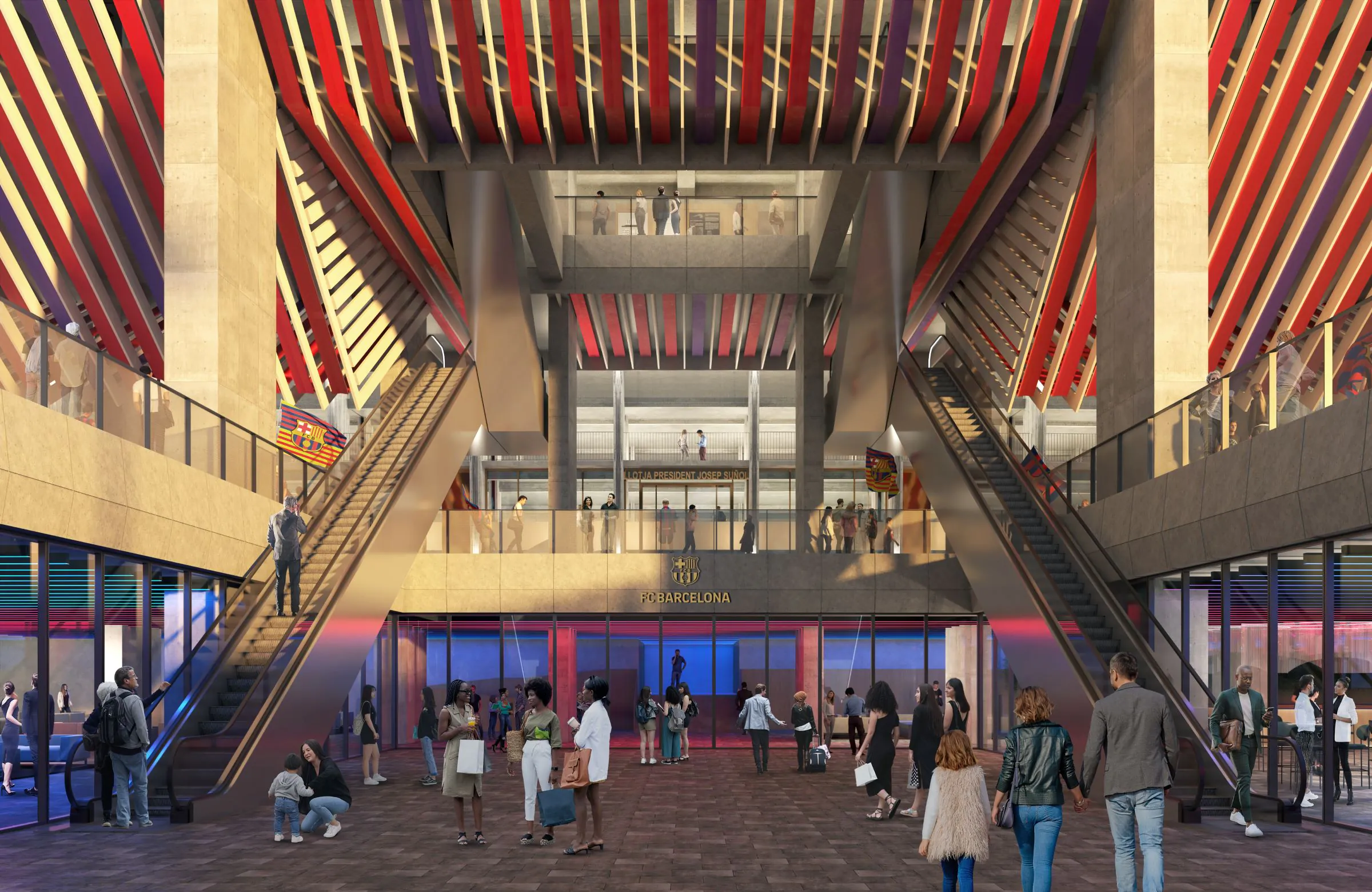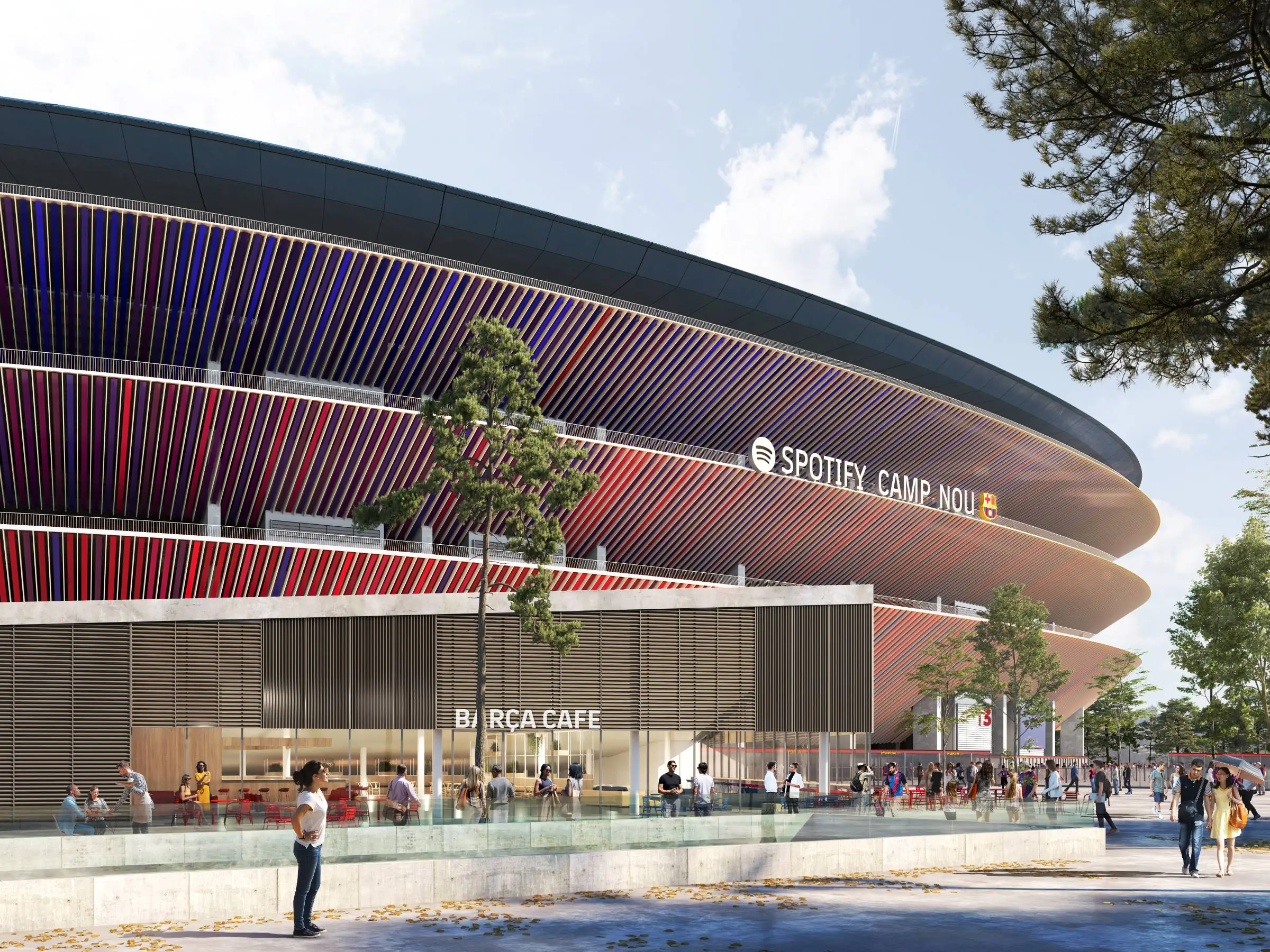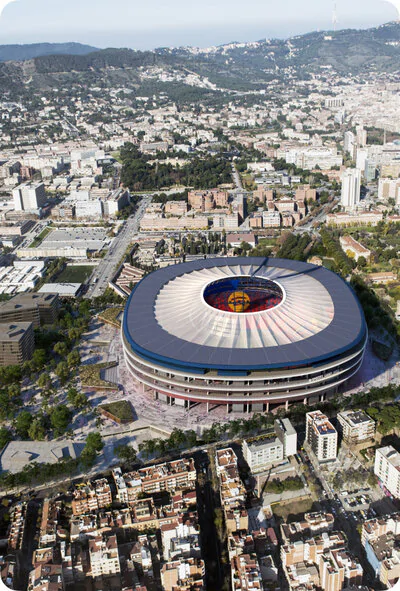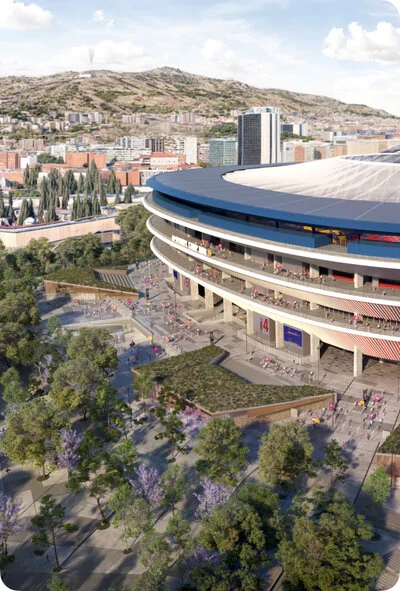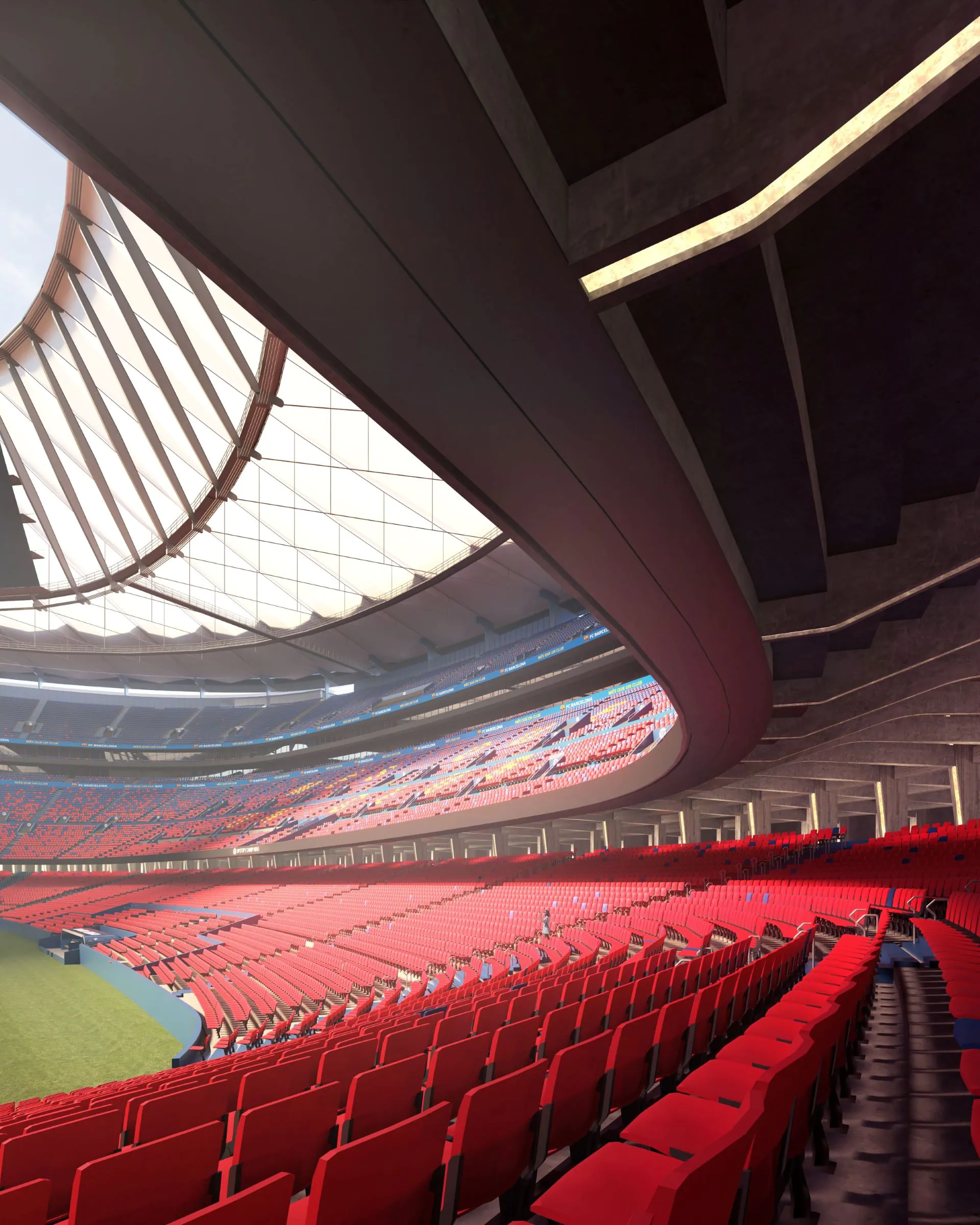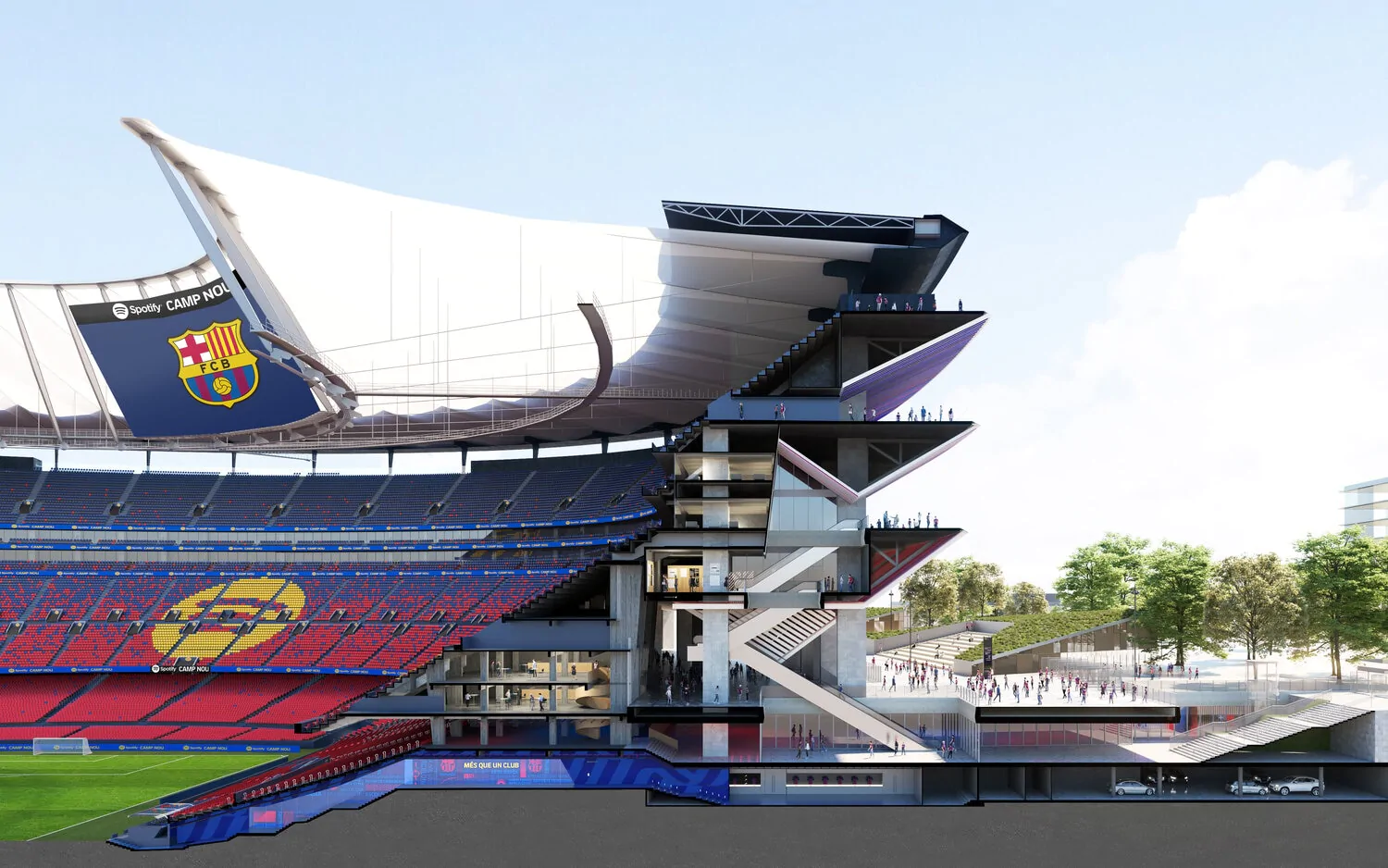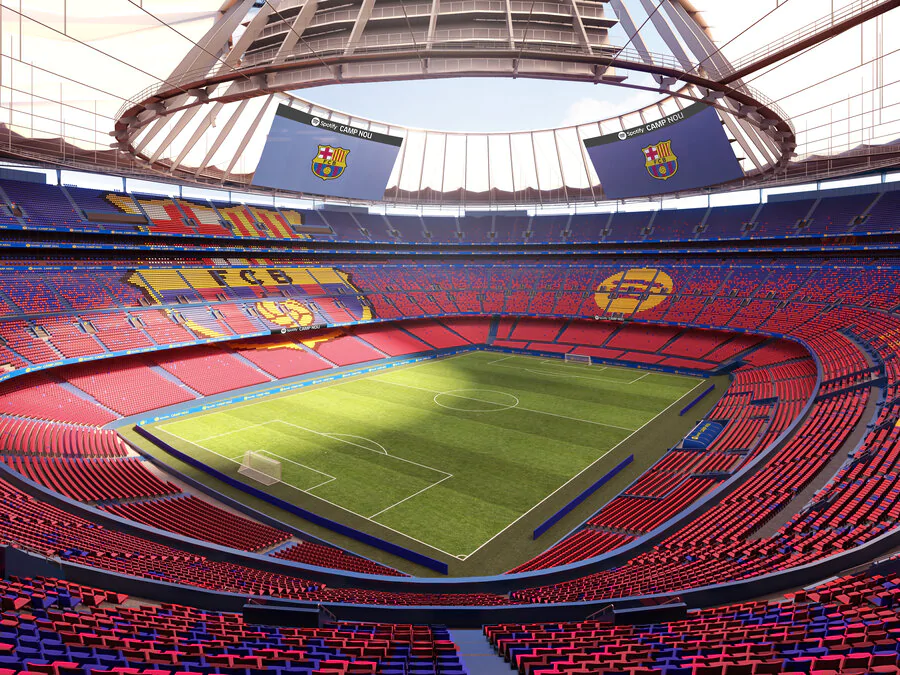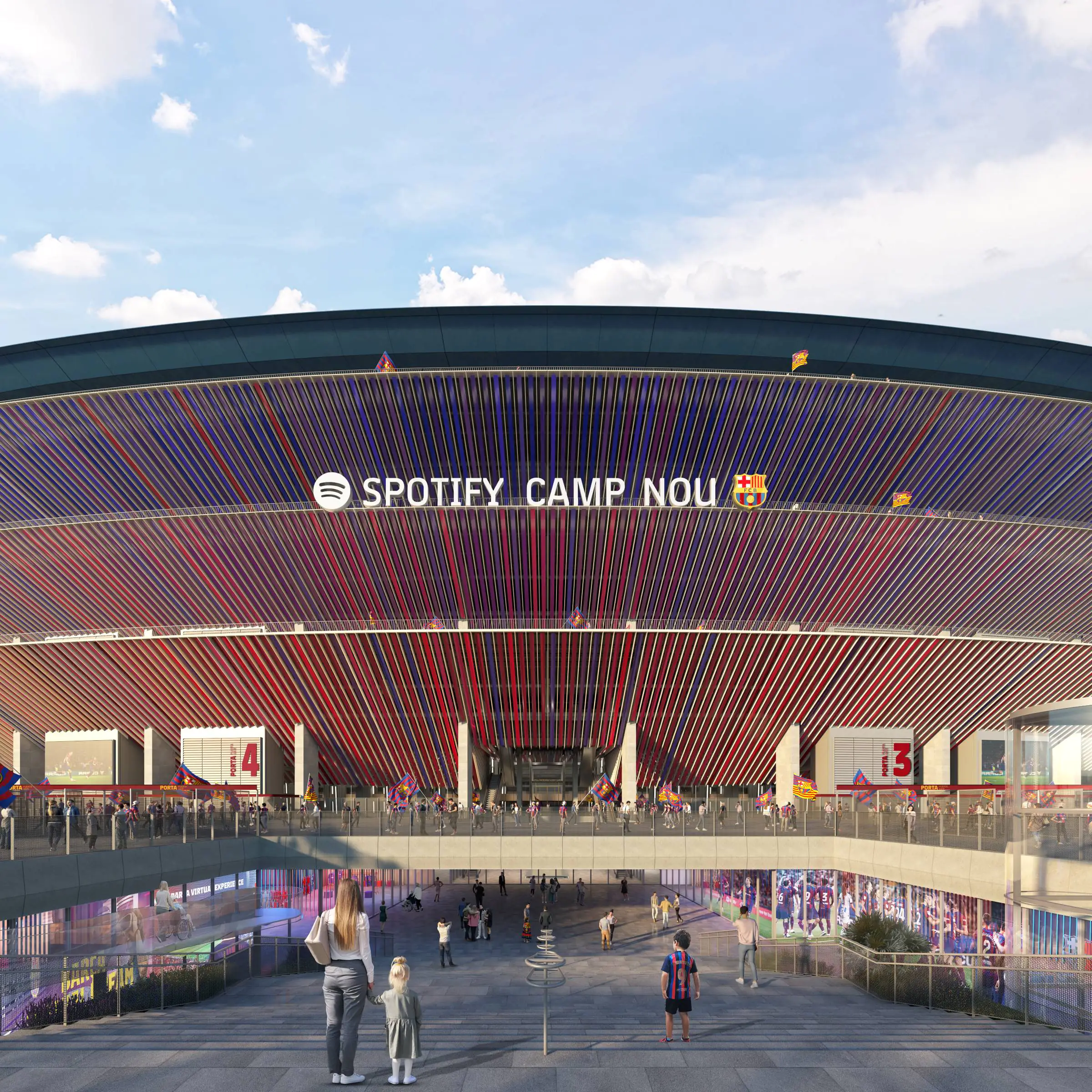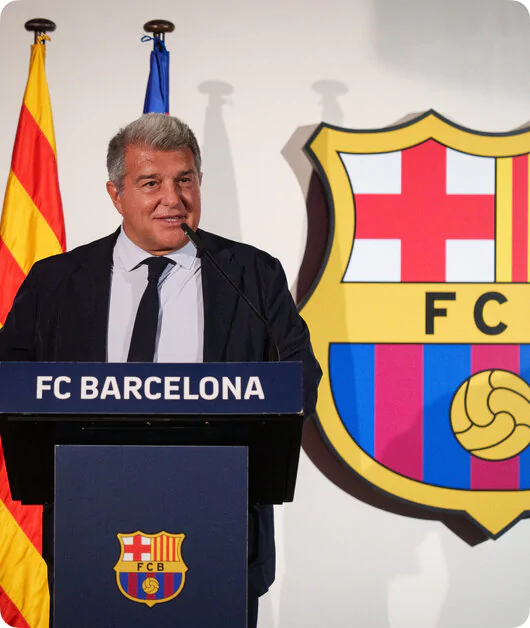Sustainability is a pillar of FC Barcelona's 2026 Strategic Plan, guiding the development of this project. Our commitment translates into a space that reduces its environmental impact, embraces resource efficiency, and enhances the quality of life, health and wellbeing of the neighborhood and the city's residents.
A PIONEERING SUSTAINABILITY PROJECT
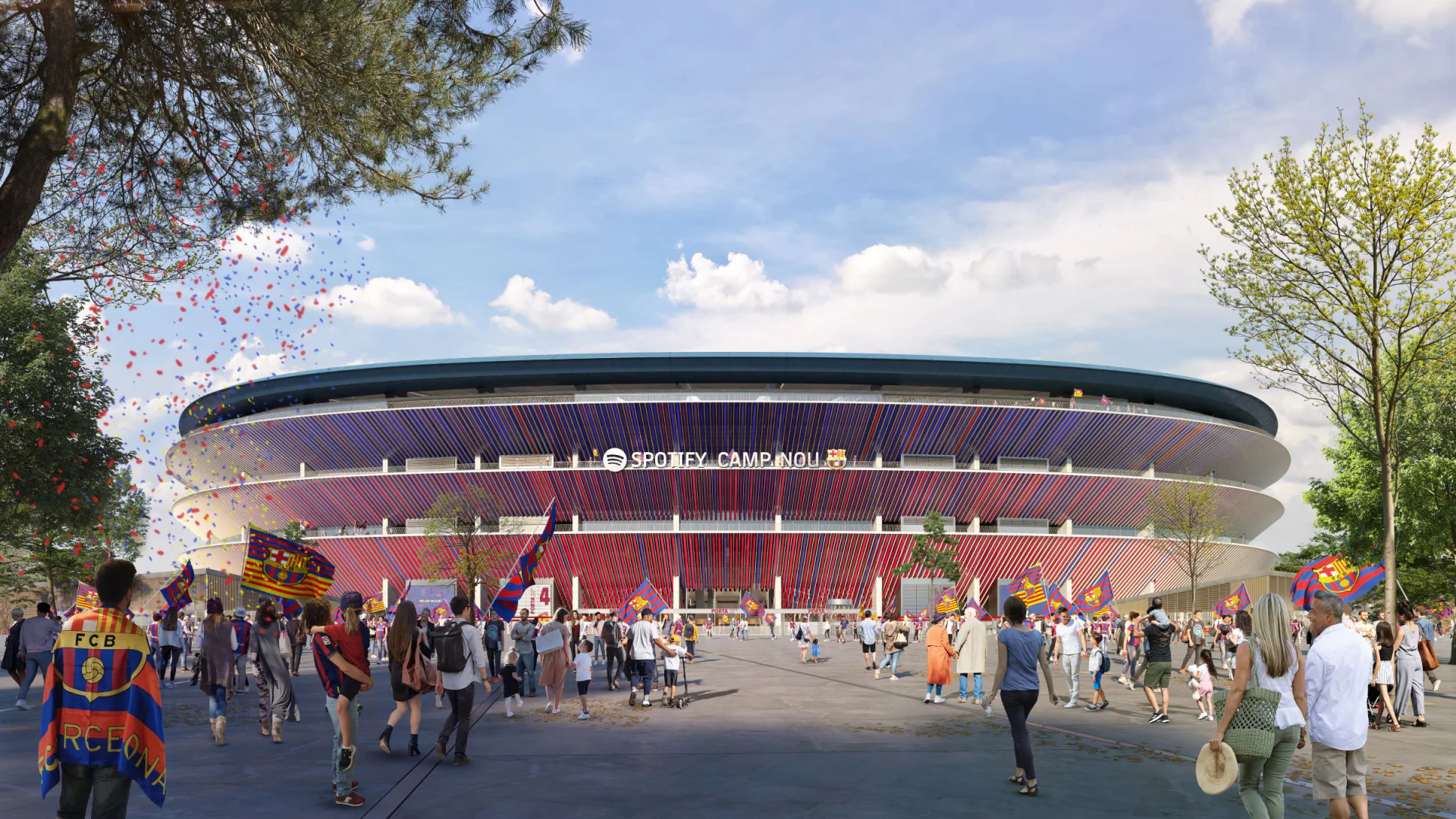
SELF-SUFFICIENCY WITH RENEWABLE ENERGIES
Energy savings, photovoltaic panels, zero CO2 emissions, and locally sourced renewable energy.
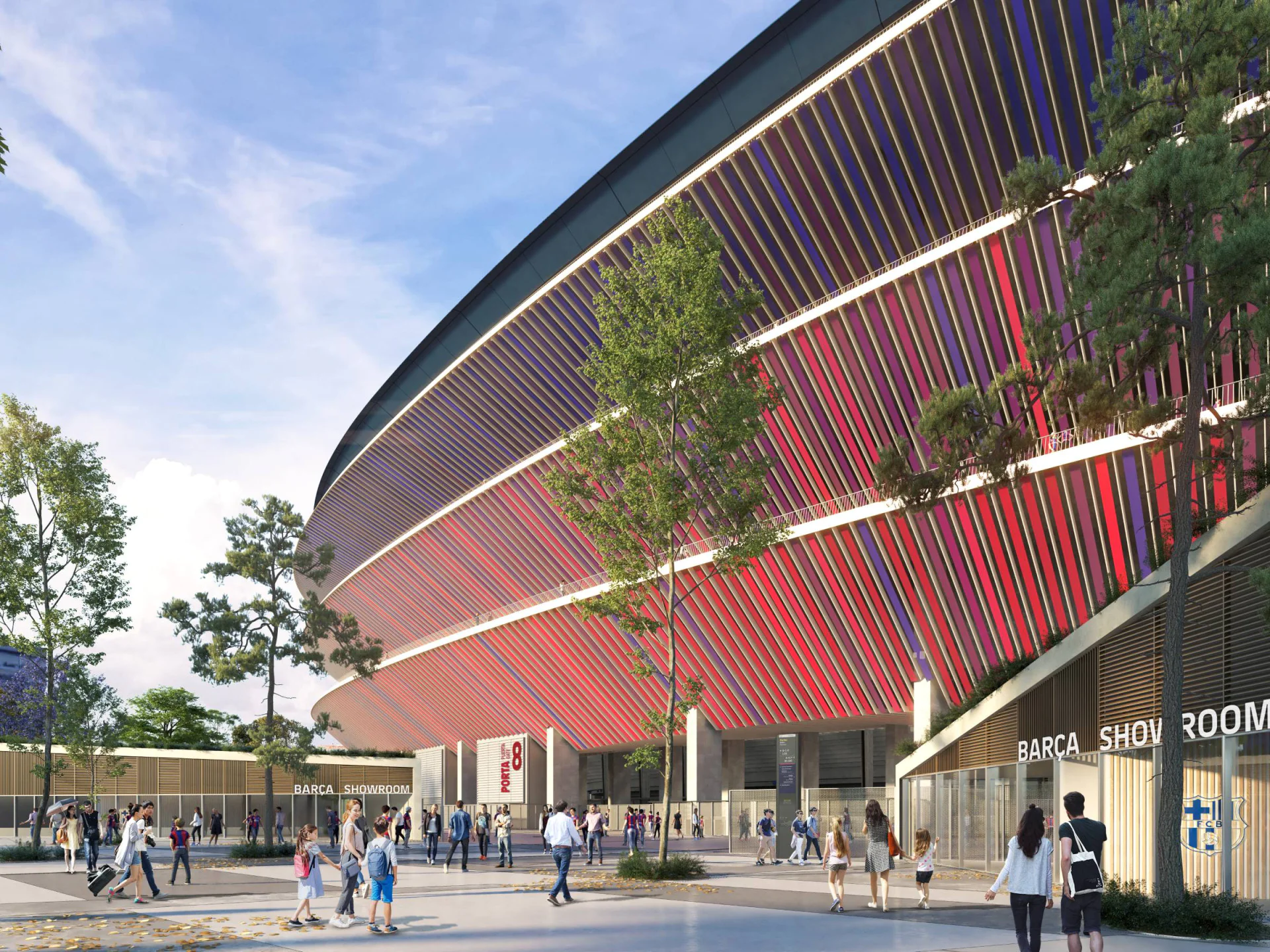
PROTECTING BIODIVERSITY AND REDUCING WATER CONSUMPTION
Rainwater collection and creation of a large green area.
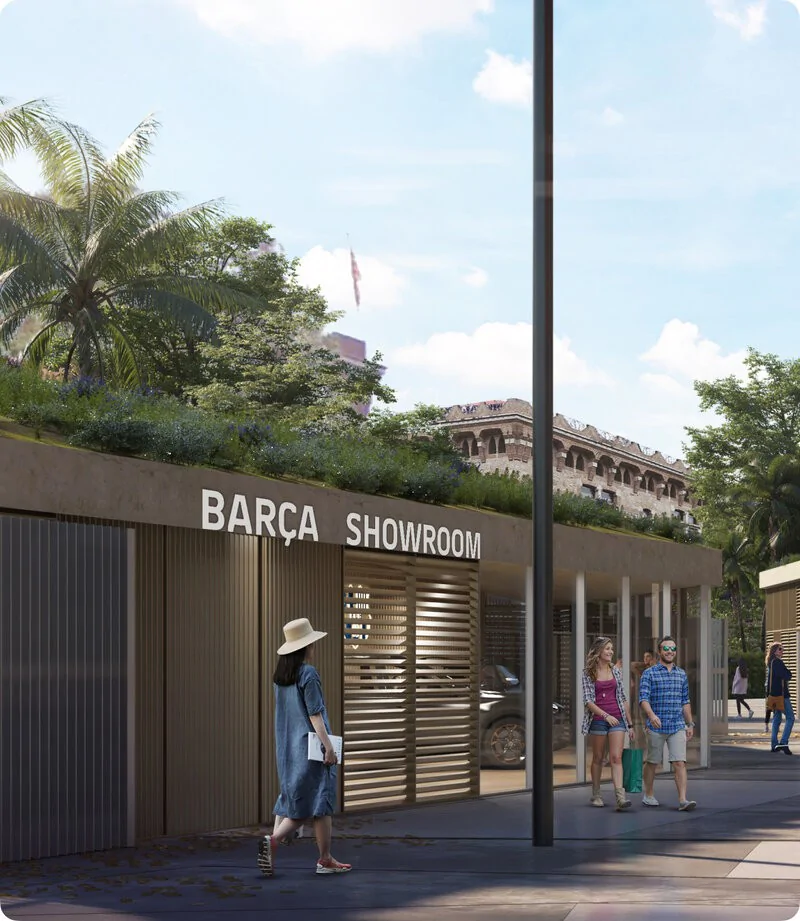
PROJECT
BASED ON CIRCULAR ECONOMY
Preserving the original architecture, ensuring maximum recycling of concrete and external steel, accompanied by the treatment and incorporation of recycled materials into the new structure.
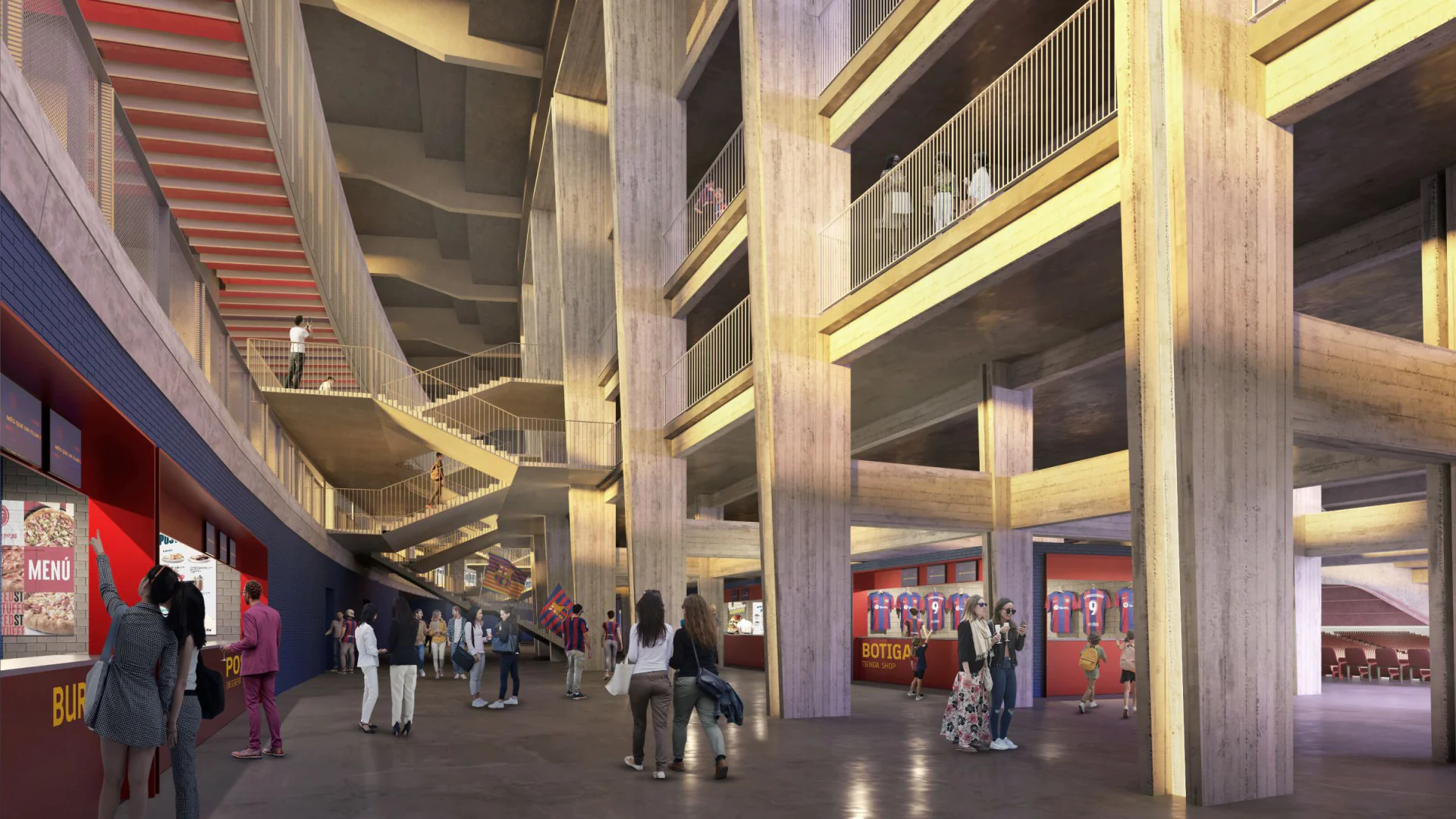
A LIGHTER CARBON FOOTPRINT
The Club's circular economy model will deliver a significant reduction in the carbon footprint left by the Espai Barca renovation works, both in terms of material and energy consumed, not only in transport but also in the manufacture of the new material.
Recycled concrete and steel will account for approximately 50% of the entire project’s carbon footprint.
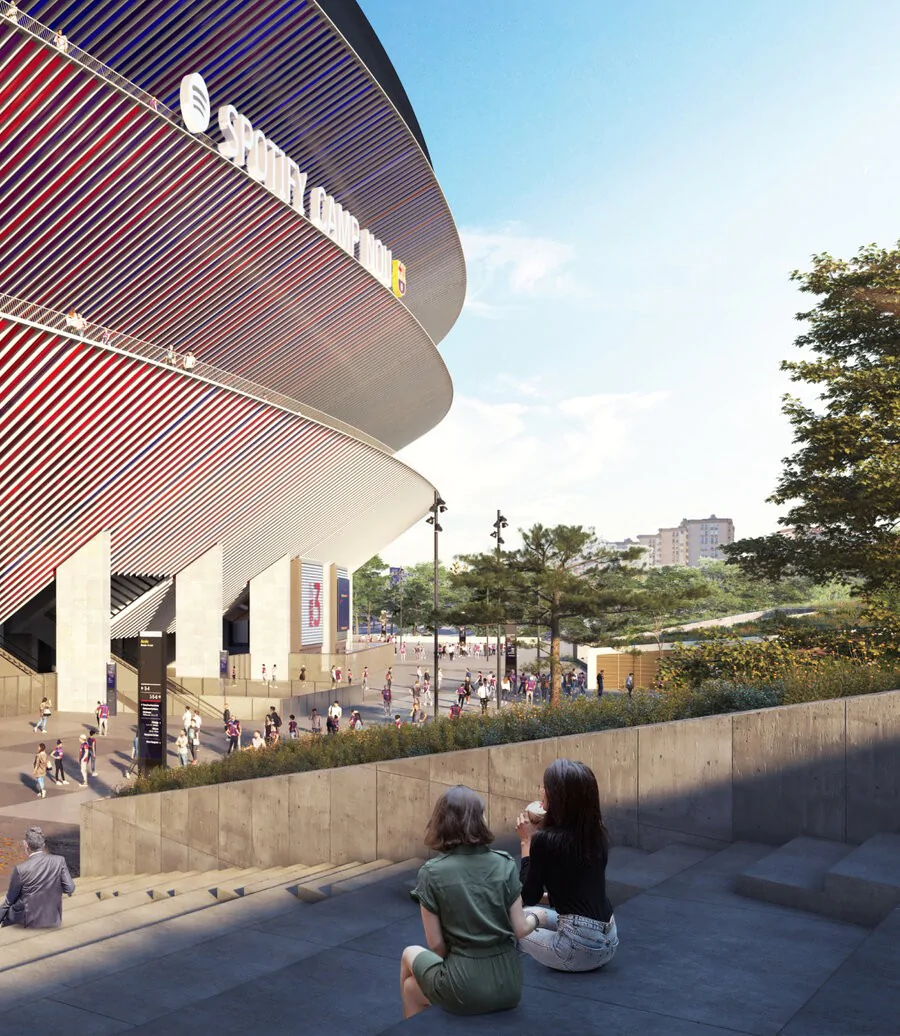
CERTIFICATIONS
Spotify Camp Nou is the world’s first stadium with a dual.


